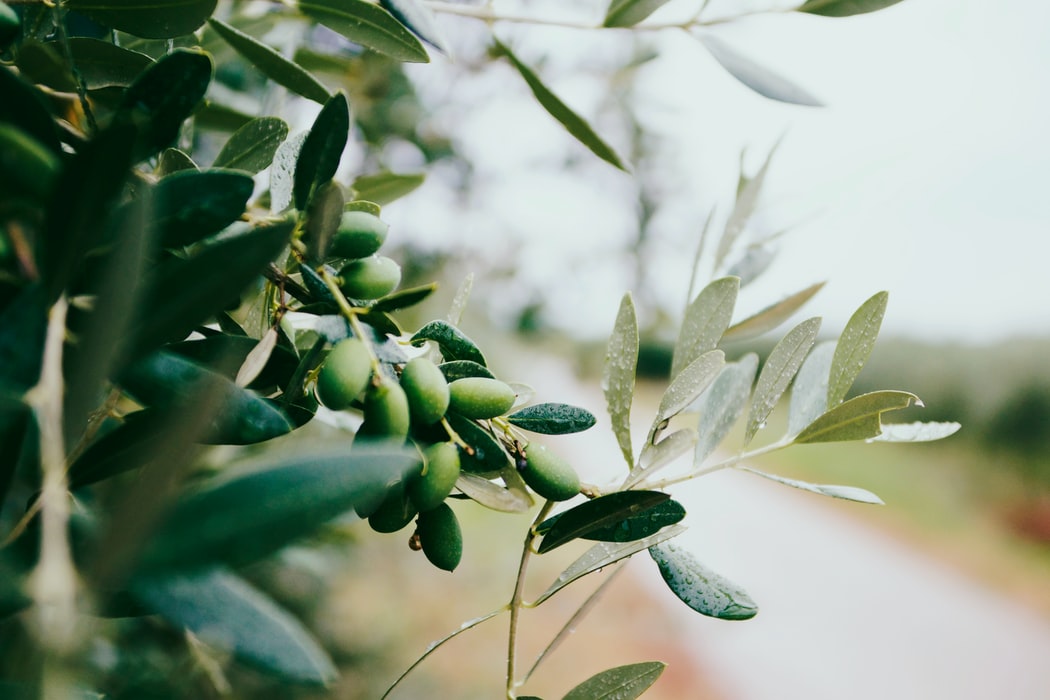Why would we even consider putting olive oil on our dreads? The short answer is that your locs are thirsty, and keeping them hydrated and moisturized are essentials to their health and wellbeing.
There is a difference between hydration and moisturization, and you need to know the difference.
What is Hydration?
Hydration is the process of adding water, humectants, proteins, amino acids, and specific vitamins that penetrate the hair shaft. The amount of water it takes to complete the hydration process depends on the type of hair in question. Straighter hair types need less water, while afro hair types need more water to achieve hydration.
Examples of natural humectants (water attractors) are aloe vera, honey, glycerin, coconut water, and witch hazel.
What is Moisture?
Once our hair is hydrated, we still must hold onto the hydration. So we need to create an outer seal around our hydrated hair shaft, which is where some kind of moisturizer comes in. It acts as a water-resistant barrier protecting the hair shaft.
So moisturizing is the process of creating that barrier around our hydrated hair shaft. Not only does it lock in the water, but it also gives our hair much-needed nutrients to make it stronger.
Commercial moisturizers contain water, and these add hydration to the hair shaft, and then the oil component of the product seals in the water. Effective moisturizers are butters and oils.
Related: History of Dreadlocks
What is Olive Oil?
Olive oil is regarded as one of the healthiest oils available. It contains 30 types of phenolic compounds. These are potent antioxidants that protect the body from free radicals. Free radicals are molecules that cause disease and aging by effecting cell damage.
Why Use Olive Oil?
Many people swear by olive oil as a natural hair conditioner that gives hair shine, resilience, body, and softness. There is some science behind the notion of olive oil being an effective moisturizer for your hair. But as you know, just because a product is suitable for loose hair, doesn’t mean it will work for your dreads. You have other concerns - product buildup, and lint collection in your dreads.
Oils are dangerous for dreads unless they give so much benefit, that they are worth the risk.
Olive oil is waterproof and hydrophobic, meaning it resists water and creates a thin film around your hair. The fatty acid triglycerides produce the softness in the hair. Together, these properties protect your dreads from breakage and other damage.
Why Not
If olive oil is so ideal for your locs and does all the things you need a moisturizer to do, why wouldn’t you use it? There are some excellent reasons.
On loose hair, heavy oils aren’t a huge problem. It’s easy enough to get the benefit of it, and then wash it out. But getting oil out of your dreadlocks isn’t so easy.
One caution to using olive oil is that it is easy to overuse. The oil is so thick that you have to be conservative in its use. Too much oil will make your dreads heavy and challenging to manage. The oily surface of your hair will also attract lint and dust.
The biggest drawback to using olive oil as a moisturizer is the difficulty in removing it. This is true of any oils you put in your hair. A good clarifying shampoo and a lot of effort will be necessary to remove it. An apple cider vinegar soak or rinse could also be helpful in this.
Related: How to Grow Dreadlocks Faster
What Other Oils Are Good for Dreads
If you’re going to take the plunge into oils for your locs, you have some options. Coconut oil is light and especially useful in bringing shine and softness to your dreads. It is readily absorbed into the hair shaft, taking its nutrients with it. But be warned, it can also dry your hair if used over long periods, and like olive oil, it can be difficult to wash out.
Other nutrient-rich oils are:
- Avocado oil
- Sunflower oil
- Almond oil
- Grapeseed oil
- Jojoba oil
Essential Oils
Is it possible to utilize the potency of essential oils instead of using olive oil or other heavier oils? Unfortunately, essential oils don’t contain fat, so they aren’t able to moisturize or soften your dreads. But they can bring health to your locs in other ways.
These have antiseptic properties to bring healing to an irritated scalp.
- Tea Tree Oil
- St Thomas Bay
- Geranium
- Patchouli
- Cade
- Bay Laurel
- Palmarosa
Hot Oil Treatments
As mentioned, olive oil can be an efficient moisturizer for your dreads. This can be accomplished with a hot oil treatment.
- Pour enough oil (Olive oil + essential oils) into a bowl to saturate your locs from root to tip.
- Warm the oil. (Not too hot!)
- Protect your clothing and apply the warm oil to all of your hair. Saturate it.
- Gently massage your scalp.
- Cover with a plastic cap, or if your dreads are quite long, put your hair in an updo. Then wrap in cling film or use a small plastic bag.
- Leave on for as long as you like - from 30 minutes to overnight.
- Shampoo out.
How Often to Oil Hair and Scalp
If you frequently shampoo with a clarifying shampoo, you can use a small amount of olive oil on your dreads and scalp, weekly. And follow that up with a monthly hot oil treatment. But if you don’t shampoo frequently or are unwilling to do the work of apple cider vinegar soaks (or the like), you should re-consider putting oils in your locs.
The buildup that will result over time will be harmful to your locs and contribute to a less than optimal appearance.

